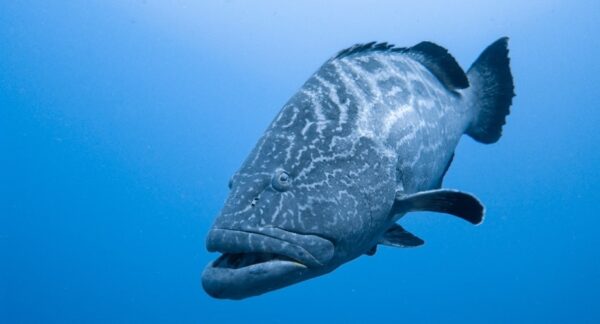Protected marine areas are one of the essential tools for the conservation of natural resources affected by human impact —mainly fishing—, but, are they enough to recover the functioning of these systems? A paper published in the ICES Journal of Marine Science highlights the limitations of marine reserves in restoring food webs to their pristine state prior to the impact of intensive fishing.
The study was led by researchers from the Biodiversity Research Institute (IRBio) of the University of Barcelona, in collaboration with researchers from the Group of Ecosystem Oceanography (GRECO) of the Oceanographic Center of the Balearic Islands.
“This study shows that with only the small-scale marine reserves, it is not enough to conserve the functionality of marine ecosystems. In areas with an intense fishing pressure, both professional and recreational, exploited areas have more influence on small reserves”, says lecturer Lluís Cardona from IRBio.
Study on carnivorous fish from shallow rocky sea bottoms
The researchers analysed the number and size of carnivorous fish living on shallow rocky bottoms in the Mediterranean Sea and in temperate areas of the Atlantic Ocean, with the aim of assessing the effects of protection from fishing in marine reserves.
Effects on number and size of fish, but not on trophic structure
The results show a larger biomass and size of carnivorous fish from shallow rocky bottoms in the analysed marine reserves, compared to areas open to fishing. The most extreme examples were the dusky grouper in the Balearic Islands and in Galicia, since larger individuals could only be found in the protected areas.
(Photo: A grouper, by Vlad Tchompalov on Unsplash)
Apart from the positive effects, the study shows that the protection of fishing did not cause any significant change in the trophic structure of the carnivorous fish community in any of those two regions, although there were some changes in the diet of some species.
According to the researchers, this indicates that the effects of the marine reserves in the Mediterranean Sea and the north-eastern areas of the Atlantic Ocean are “sufficient to help reconstruct the populations of some carnivorous fish and restore the size structure, as well as to provoke changes in the diet of certain species, but they are unlikely to induce the recovery of the trophic structure of pristine ecosystems prior to the intensification of fishing”.
The impact of the absence of sharks, dolphins and seals
These results would be explained due to the lack of large carnivorous fish and other highly mobile species, such as seals and coastal sharks, which are at the top of the food chain and have been affected by human exploitation.
“Marine reserves favour the recovery of species such as the dusky grouper, but not other highly mobile and large species such as sharks, dolphins and seals. The lack of these species is what prevents the emergence of differences in food webs between reserves and areas open to fishing, in the Mediterranean and the Atlantic, beyond the recovery of the biomass of some sedentary species”, says Lluís Cardona.
Cardona thinks the focus of the future conservation of marine ecosystems regarding fishing has to be on “reducing the impact on highly mobile and large species in the areas that are open to fishing, since marine reserves alone can do little to protect these species”.
The full news release is here. The full peer-reviewed paper in the ICES Journal of Marine Science can be read here.
